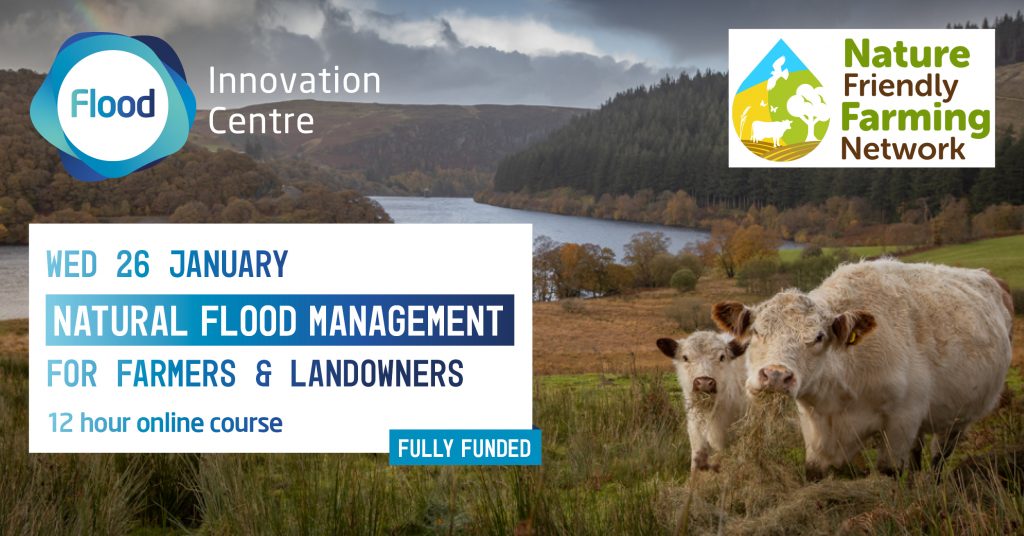
A blog from Dr Kate Smith on the importance of Natural Flood Management (NFM) to manage flood risk and manage soil quality on farm land.
Soil matters. No matter what you grow, no matter what livestock you raise, no matter where you do it: if you farm, your soil is a critical part of how your business functions. And this isn’t just because with depleted soil you need more expensive inputs to get a reliable yield. Healthy soil doesn’t just hold on to nutrients: it holds on to carbon and, most importantly for us at the Flood Innovation Centre, it holds on to water. This is important because the more water that good soil can hold, the less runs off the land – reducing erosion, pollution and flooding.

To help with this process, Natural Flood Management (NFM) is a key approach to flood resilience that relies on five basic principles:
- Retaining water safely on and in the landscape
- Providing attenuation – slowing the peak flow of floodwaters
- Promoting and protecting the movement of sediments in river catchments, which improves both soil and water quality
- Restoring catchments so that rivers can wiggle and marshes can re-wet
- Promoting biodiversity and amenity through all of these activities
It’s not just by improving soil that farmers can make a real difference to the way that floods impact their businesses and communities. As custodians of our landscape, farm businesses have the potential to transform other aspects of land and water management practices too. In upland areas, this might include changing grazing patterns to promote hillside regeneration and making space for upstream water retention ponds. In other areas, planting bare arable fields with cover crops could help slow run-off from fields, and re-wiggling straightened streams can slow the flow within waterways. In coastal areas, allowing drained marshland to return to its natural state can leave space for coastal floods to spread out without impacting valuable land.
As we move into a new era of agricultural funding, farm businesses can put themselves into a strong position to take advantage of the new Environmental Land Management Scheme (ELMS) by working with NFM. The move towards rewarding farmers for improving landscapes and ecosystems means that interventions like NFM are no longer a nice-to-have add-on relevant to only the most profitable farm businesses. Including NFM strategies in your farming practices has the potential to help your business be financially and environmentally sustainable.
At the Flood Innovation Centre, we’re here to support your farm business with our in-depth, fully-funded, interactive workshop to help you identify and implement NFM interventions. Working with the Nature Friendly Farming Network you’ll hear from our scientists about how and why NFM works, from real-life experts about their experience of working with NFM, from policymakers and industry leaders about the best ways to make NFM work on your farm.
Find out more about our upcoming NFM online series workshop starting in January 2022.